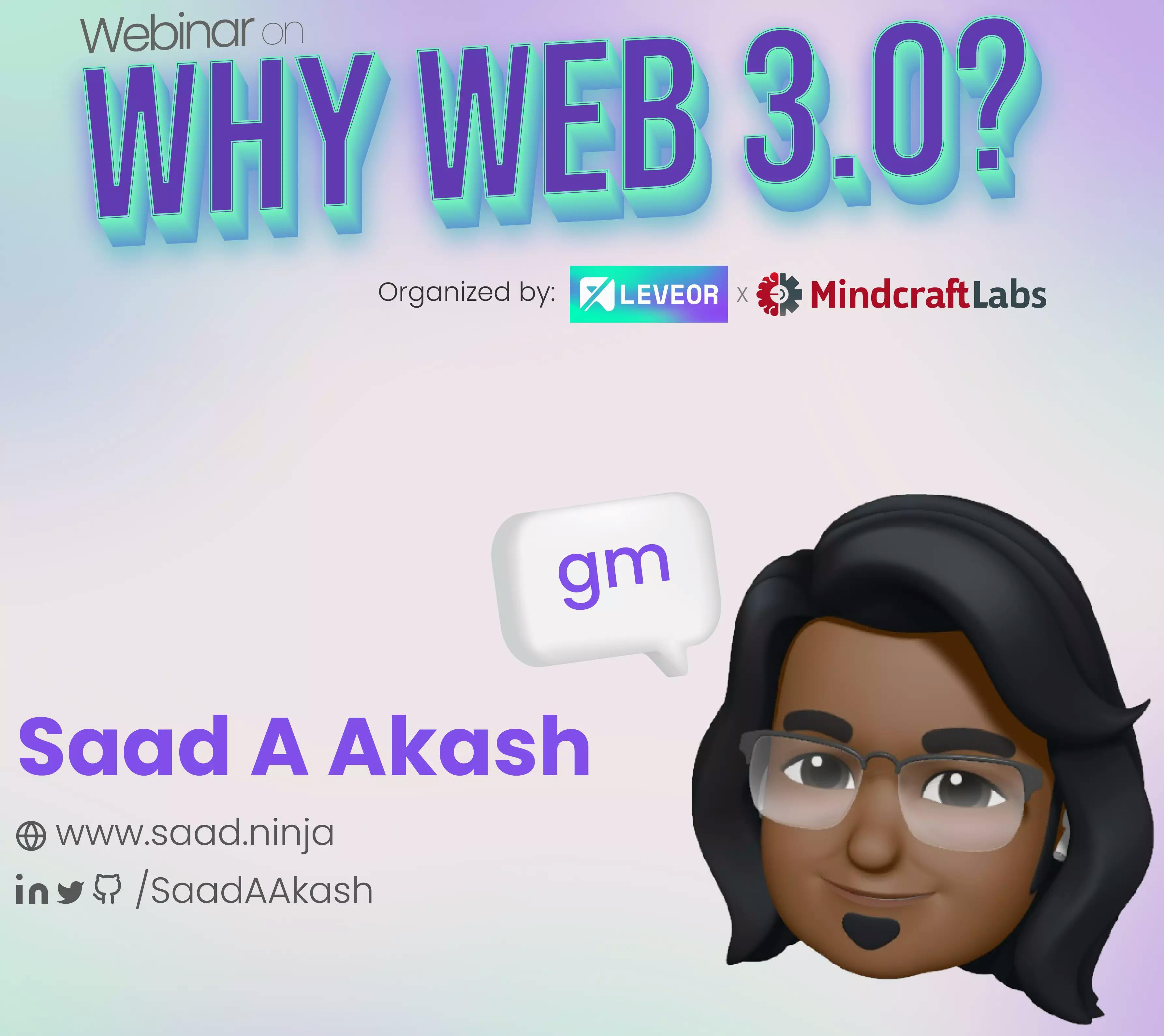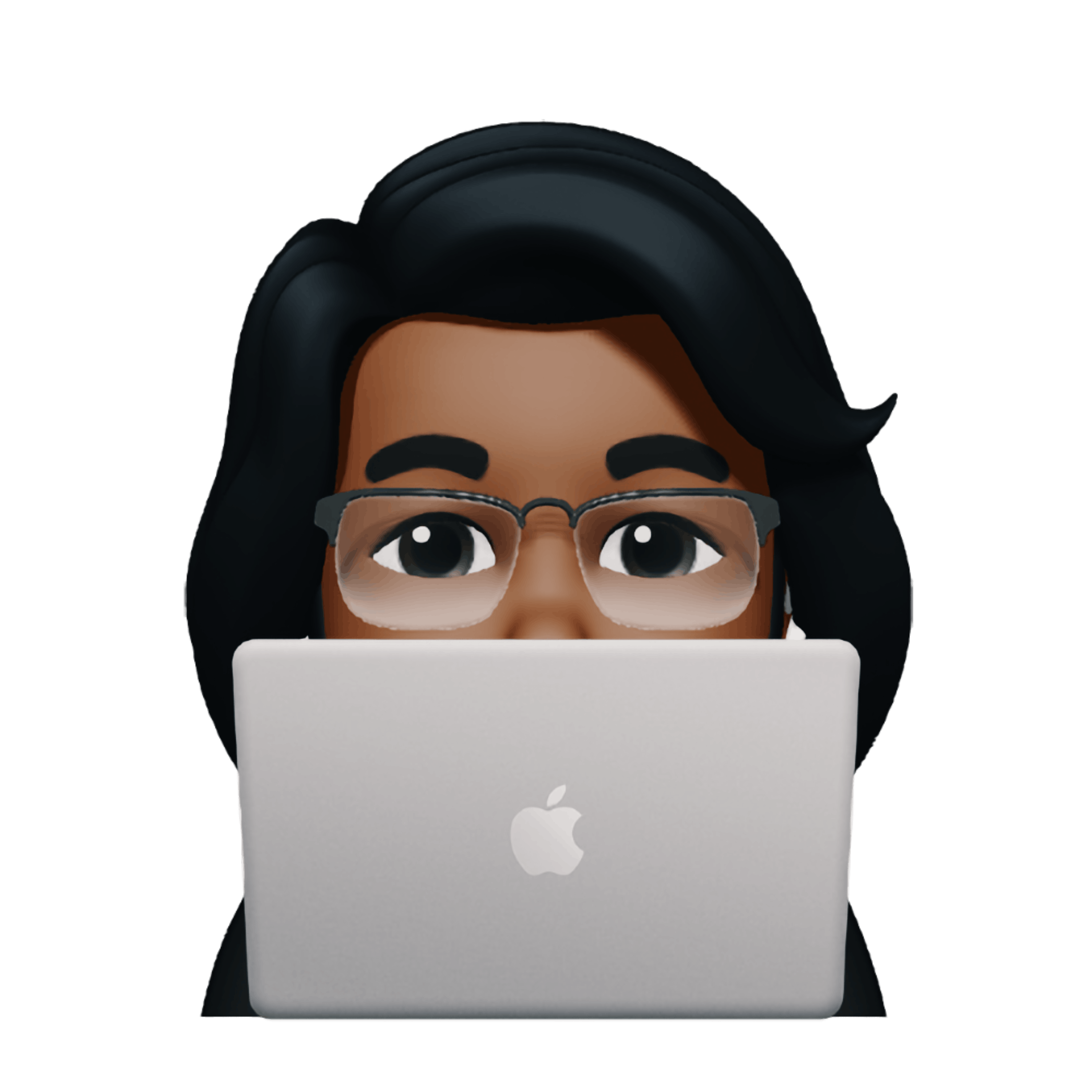Why Web3

This article was originally published on personal blog [alternate link]
Web3 has evolved into a catch-all word for the notion of a new evolution of the Internet. Decentralization sits at its heart with a promise to return ownership and authority to Internet users. The buzzwords Metaverse, Blockchain, Crypto & NFT have been floating around for a while & many of us are still skeptical about what these words mean for our work, businesses & future.
Should we even bother understanding these concepts? Even if we know the concepts and their use cases, are decentralized networks really a silver bullet to all the problems we have now?
With Crypto & NFTs being the face of Web3, there’s much more to this space than meets the eye.
This space is still early in its evolution & there is a massive difference between thinking that decentralized networks should win, and saying they will win. So I, from Leveor, arranged a local webinar to reflect on some of these commonly misunderstood concepts and to spark discussions, discourse, and debates around decentralization and how businesses can utilize this Fourth Industrial Revolution (4IR) technology to transform and thrive in the near future.
Okay so what's all this web3 all about, if not Crypto shitcoins & NFTs?
Before jumping on the buzzwords, we must fall back to the core concept that all this web3 truly stands upon, decentralization. Decentralization consists of networks, tools & processes that are not controlled by any central entity. Decentralization sits at the heart of web3 which aims to offer an Internet that's operated and owned by its users. Web3 enforces the power shift from corporations to the hands of individuals who run the Internet.
Web3 uses blockchains, which are special computers that anyone can access but no one owns - to put it in its simplest form.
From the perspective of economy, Web 1.0 introduced the information economy with its read-only web which occurred roughly between 1990 to 2004. The Web 2.0 era began in 2004, enabling users access to a read-write web, and started the platform economy with their advertising-driven revenue models. Web3 proposes a read-write-own web as speculated in a tweet from Him Gajria to introduce the ownership economy.
If I can draw a summary, Web3 is (offers) -
- Decentralized (Ownership): Distributed ownership among its builders and ecosystem users
- Permissionless (Censorship): Equal access to participate & censorship resistance
- Trustless (Identity): No more trusting different platform & carry/control digital identity across platforms
State of Web3 Adoption
And to think that we haven't even added Coca-Cola, Adidas, Nike, Lamborghini, Prada, Gucci, or Tiffany to this list of brands, tech companies like Twitter, Shopify & Spotify, fintech companies like Nasdaq or Blackrock who have adopted web3 so far! These are just the brands that have partnered with Polygon, a web3 infrastructure company from Bengaluru, India, launched projects & are now pushing web3 forward for mainstream adoption! 🚀 📈
Slides/Presentation to the Webinar
Here's a detailed 90+ page presentation for you to dive deep into the materials, concepts and explore the use cases, 10 case studies I thought are relevant, including but not limited to-
1. Cashless Payment
2. KYC (Know Your Customer)
3. Forex & Inter-Banking
4. Trade Finance
5. E-Governance & Supply Chain
6. Certificate Issuance
7. Land Registry
8. MFI (MicroFinance Institution)
My take on Web3 in the local Webinar
Anyone telling you what crypto is going to do in the future with absolute certainty is lying
Web3 is not beyond criticism. We're still in our early days and a lot of the implementations, tools, and infrastructure are still centralized. Meanwhile, just keep buidling as we enter a new era of the Internet as we know it. I maintain an open-source repository of curated summaries, best practices, readings & resources on beginner to advanced concepts of the web3 ecosystem. Here's the local talk of the webinar (language used - English & Bengali):

